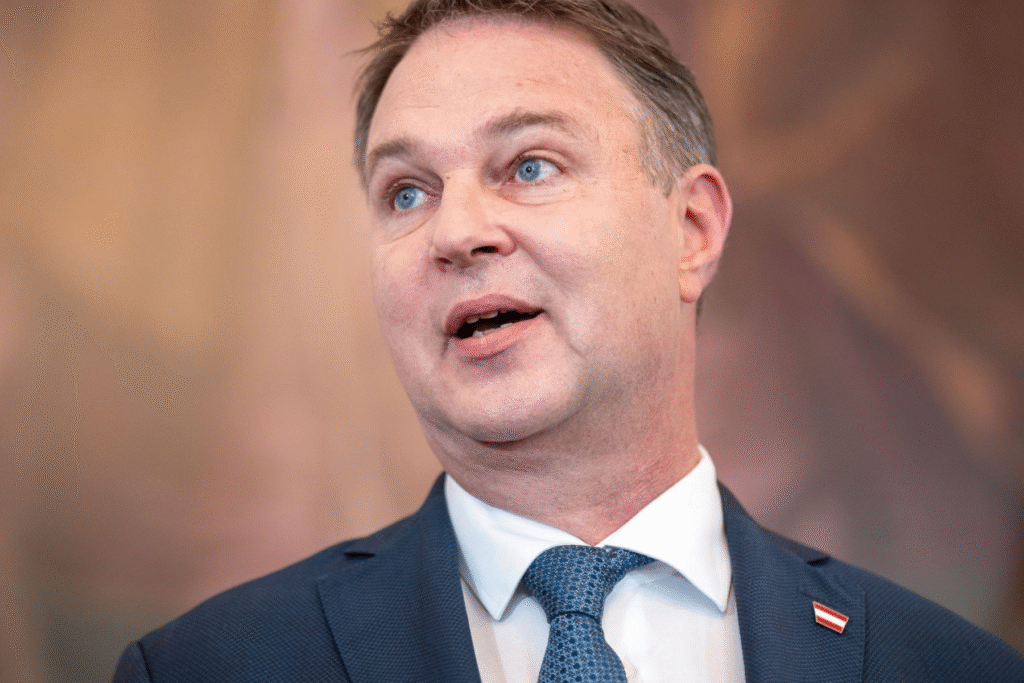
The federal government has agreed on a comprehensive rental package in the Council of Ministers. With a new “Rent Value Adjustment Act,” unregulated rents will for the first time be subject to price intervention. As announced in the government program, the rent brake in the regulated sector will be extended and minimum fixed terms will be lengthened from three to five years. Vice Chancellor and Housing Minister Andreas Babler (SPÖ) called the package after Wednesday’s meeting “a major breakthrough.”
The rent brake for the unregulated sector is set to take effect in January 2026. Specifically, if inflation between two years exceeds three percent, only half of the inflation rate above that threshold may be passed on to tenants of apartments. Example: if inflation is six percent, rents may rise by a maximum of 4.5 percent. “This will protect millions of tenants from a price explosion during high inflation,” said Babler. With the exception of single- and two-family houses, the law will apply to all new and existing rental contracts.
In addition, value adjustments will only be permitted once a year, and no earlier than April 1. This is intended to prevent tenants from facing multiple rent hikes in a single year. For residential leases, the law will be mandatory—unlike for commercial leases, where different agreements may be made.
The rent brake in the regulated sector will also be extended. In 2026, the approximately 600,000 benchmark and category rents, as well as all rents based on “reasonable rent”—that is, all apartments under the full application of the Tenancy Act—may only rise by a maximum of one percent, and in 2027 by a maximum of two percent.
From 2028, the same rules as in the unregulated sector will apply: if inflation exceeds three percent, landlords may only raise rents by half of the inflation rate above that value. Non-profit housing associations are exempt. “We’re keeping the brake firmly applied,” said the Vice Chancellor, praising the government’s work: “Yes, we’re starting the political autumn with this major package against inflation.”
For all rental contracts concluded or renewed from January 1, 2026, the minimum fixed term will be extended to five years. “This does not apply to small private landlords—those renting out fewer than five apartments,” clarified ÖVP Economics Minister Wolfgang Hattmannsdorfer.
“This exception is very important,” said Deregulation State Secretary Josef Schellhorn (NEOS). “What use is affordable housing if there are no incentives to bring it to market?” He also emphasized the need to cut red tape for rural house renovations. “In villages, houses stand empty while construction continues in suburban belts,” he criticized, announcing new deregulation measures for this autumn. Both Hattmannsdorfer and Schellhorn stressed that the new law is “not a cap, but a brake.”
A Supreme Court ruling in the summer, which found that value adjustment clauses in long-term rental contracts were generally permissible, sparked debate. With the rent brake, there will now be a clear legal framework for how such clauses must be structured in the future, eliminating uncertainty caused by past unlawful clauses. To draw a clear line, the government agreed that overpaid rents can only be reclaimed retroactively for five years once the law takes effect, instead of up to 30 years as before.
In addition, an expert group will develop proposals on how to distribute the costs of thermal renovation and decarbonization of the building stock fairly and socially. A regulatory mechanism will also be drafted to make carrying out such measures more economically attractive than neglecting them. A proposal is expected in the first half of 2026. The aim is to advance ecological renovation of the existing building stock.

